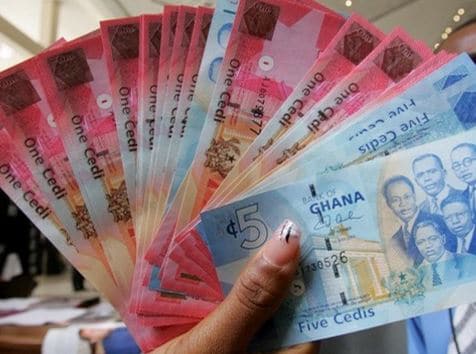The cedi has performed better than a number of currencies across the African continent in the face of the COVID-19 pandemic. This was reported in the August 2020 Flash Note of the African Markets Revealed (AMR) report released by the Standard Bank.
According to the report, the performance of the local currency can be attributed to a combination of a diversified export base and reduced import activity among others.
“The Ghana Cedi has held relatively firm this year compared to a number of its African peers, amidst significant capital outflows occasioned by the pandemic. A combination of a fairly well diversified export base, robust forex reserves and reduced trade and import activity seems to have supported the currency”, the report noted.
The report further noted that “the Ghana Cedi has only depreciated by 1.6% year-to-date compared to a 9.6% year-to-date depreciation, during the same period in 2019. The GHS has on average depreciated by around 10% against the USD on an annualised basis, in the last five years”.
The August Flash Note also applauded the central bank for putting in place measures that ensured that the local currency remained stable over the past few months. The report said “Sustained forex interventions by the BoG, coupled with strong mining flows, have kept the cedi stable over the past few months. BoG interventions year-to-date are US$1.86bn in spots and forwards, in large part thanks to the much bolstered forex reserves position, compared to US$1.36bn during the same period in 2019.”
The report also noted that “…the government was able to secure a US$3bn Eurobond facility earlier in March before global risk sentiment deteriorated owing to the COVID-19 pandemic. Furthermore, the US$1bn IMF RCF facility further boosted forex reserves; reaching a peak of US$10.29bn in April before declining to US$9.2bn as at June”.
“Additionally, mining flows owing to higher gold prices, have been relatively robust over the past three months. This has helped with increased forex supply at the interbank market, ultimately keeping the Ghana Cedi fairly stable around the 5.77 – 5.82 levels. It is also worthwhile to note that forex demand has been somewhat subdued owing to the disruption to global supply chains, brought about by the COVID-19 pandemic. More importantly, the reduction in oil imports has also helped tame the levels of forex demand”, the report continued.
These positive signs notwithstanding, economists at Standard Bank caution that the local currency may experience some depreciation due to coupon repatriations ahead of the December 7 elections.
“We still hold a somewhat depreciating bias for the US$/GHS pair over the coming months due to coupon repatriations and foreign portfolio outflows ahead of the December 7 elections, as is done at the end of every year. Fiscal slippage risks will inevitably be elevated ahead of the elections and the recently announced budget, doesn’t help allay these concerns”, the report noted.
The African Markets Revealed Report is a monthly report issued by the Standard Bank Group, parent company of Stanbic Bank Ghana and focuses on the economic and financial outlook of African countries.
The report also reviews current economic situations and makes short to medium-term predictions about the economies of African countries.










